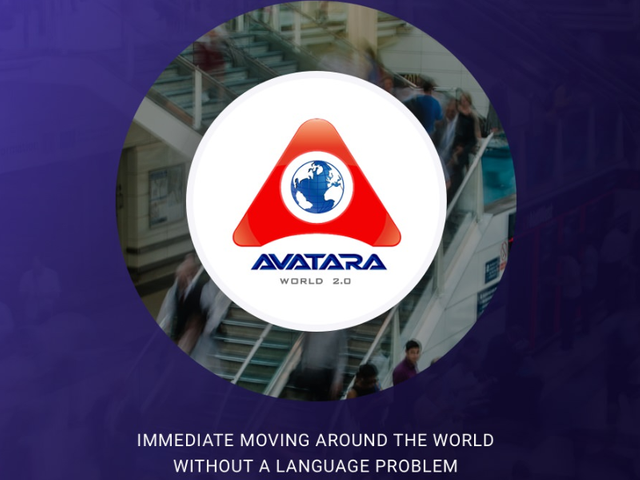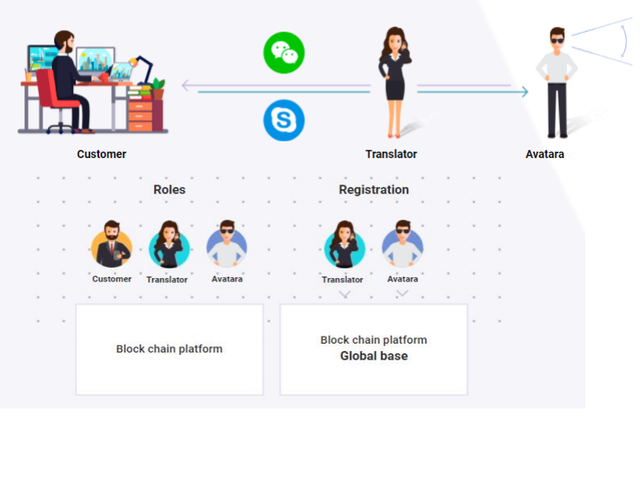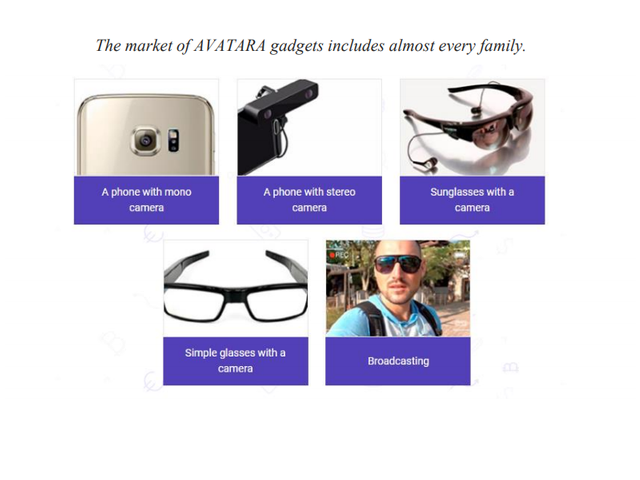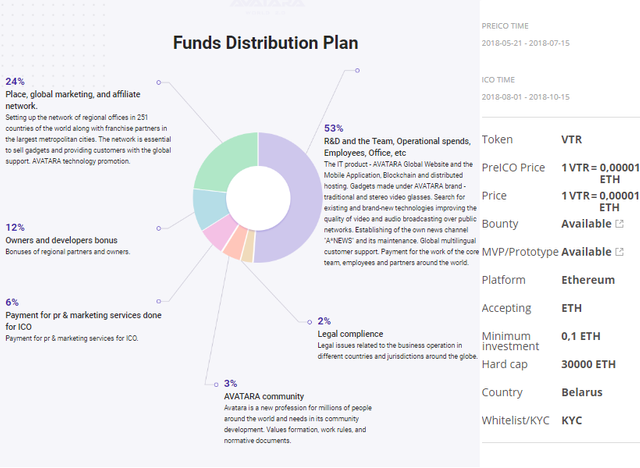
We live in a highly interconnected world. Past advances have made global travel, whether for business or for pleasure, available to more people than ever before. But even now, most people can't find the time or the money to travel all year round, giving an advantage to the lucky few who can. Today's telepresence technologies have helped bridge that gap in part, allowing people to “attend” events or “explore” cities from a distance.
However, AVATARA company believes that there is still much room for improvement in how this technology is used. Right now, the telepresence services available to most people are sharply limited. The company plans to offer those services on a decentralised, affordable basis through its international blockchain platform. It would allow ordinary people and companies to hire “Avataras” and translators to project their presence anywhere in the world.
How would you work with Avataras?
Anyone will be able to register on the Avatara platform, applying for one of three roles: that of a customer, an interpreter or an Avatara. The last one will be a person who is willing to serve as a customer's proxy, needing only a camera phone, a tablet or video glasses and an Internet connection. They will be able to purchase the company's own branded mono and stereo video glasses. Customers will be able to select Avataras based on various criteria, including location and the price that those other users will set for themselves. After reaching an agreement through the platform chat, the Avataras will be able to establish an audio and video stream with their clients through Skype or a similar program, with interpreters added to the channel if necessary. People will also be able to hire out their robots or drones in this fashion.

The company anticipates many different uses for this platform. Naturally, it could be used for guided virtual tours – whether simply asking your Avatara to walk around their city and point out locations of interest or having them visit a museum. Likewise, it could be used to attend lectures, casinos or scientific or business conferences. It could be used to arrange social work (a disabled person hiring an Avatara in the same city to run errands) or for targeted charity (sending someone money and making sure it is used properly). AVATARA attaches special hopes to its potential for an independent news service, however. Avataras will be able to make and upload videos, whether into public access for all platform users or to their own private videos for sale to media agencies. Customers could ask Avataras on the spot to look into current local events for them. Eventually, the company hopes to create a global news channel, A*NEWS, with the help of its international userbase.
Payments on the platform and for platform fees will be made with AvataraCoins (VTR), executed through smart contracts and transmitted through the Ethereum (or later, Graphene) blockchain between the unique wallets given to the users upon registration. Payments will be made automatically within an hour of the agreement being reached, unless the customer requests a refund within that period. Only senior moderators will have access to the users' encrypted registration data, and none will be able to access the wallets.
What are Avatara's advantages?
Avatara is aimed at many different uses, users and markets, and its participants might discover many additional use cases in addition to the ones listed above. It could suit the needs of virtual tourists and international entrepreneurs alike. By adding translator support and the human element to the current telepresence services, it could greatly enhance its value. It certainly stands to benefit from creating a whole new kind of job within the sharing economy and tapping into popular technological and social trends.

The concept behind Avatara has first been published in 2011, but has only truly become viable with today's Internet connection speed and other advances. Further improvements, such as the development of brain-computer (and therefore, brain-brain) interfaces which the company promises to support, could be integrated in the future to improve this platform further. The Avatara team, which includes international business professionals and experienced software developers, has already created the MVP versions of its portal and mobile app. It promises to launch the main product within two months of the ICO's conclusion.
Token sale details

A daring attempt to link the world
Telepresence is certainly a popular tendency, and one that can be very lucrative due to its wide variety of uses, which Avatara proposes to extend even further. But Avatara's success does not seem like a sure thing. Even with the current level of development of both technologies and businesses in the field, the idea is an innovative one which may take some for people to accept – and it will require the acceptance and the full participation of enough people in all three of the platform's roles to succeed.
Still, the success of past sharing economy ventures can be taken as an encouraging sign. If people are willing to share access to their cars or residences, why not their own presence and video devices? If the project does manage to build up a global base of Avataras and interpreters, it could become an ubiquitous and highly valued service. It could not only bring vicarious enjoyment of the entire world to a vast and underserved demographic, but also streamline the way people interact with each other in different spheres and across vast distances.
Links:
Website: https://avatara.world/
WhitePaper: https://avatara.world/files/WhitePaper.pdf
Telegram: https://t.me/avatara_ico
Facebook: https://www.facebook.com/avatara.world/
Twitter: https://twitter.com/Avatara_World
Medium: https://medium.com/@matrixekiber
ANN: https://bit.ly/2NdcEMO
Author: https://bitcointalk.org/index.php?action=profile;u=980049
Disclaimer
This review by Bonanza Kreep is all opinion and analysis, not investment advice.